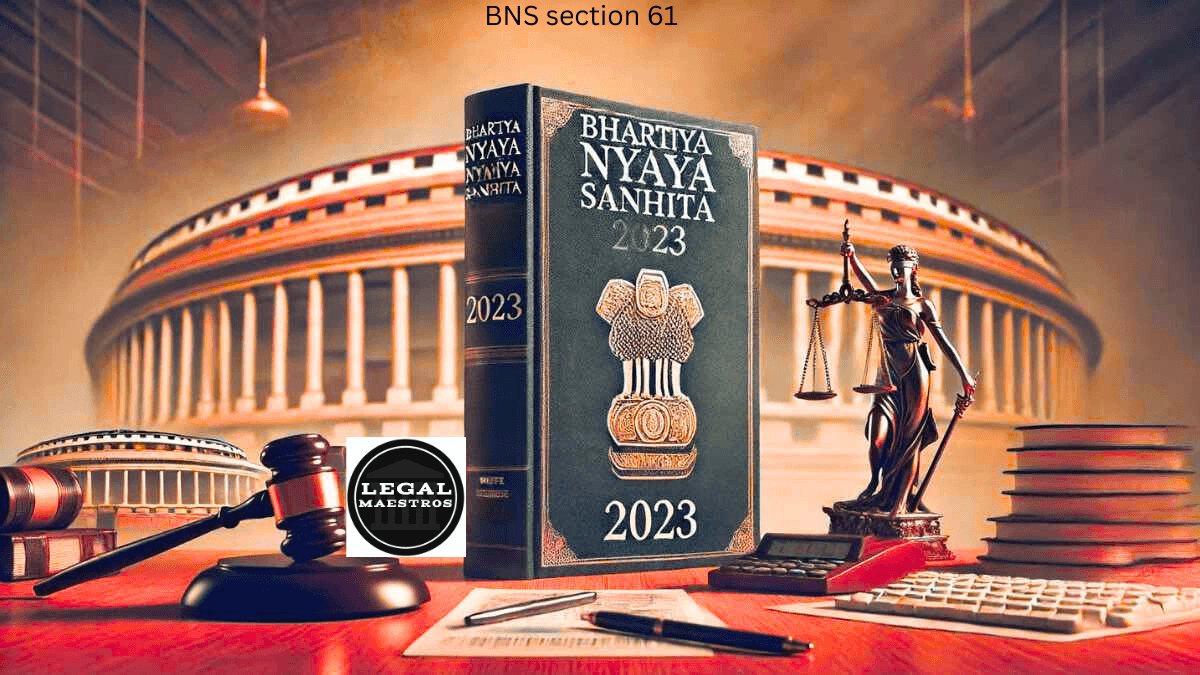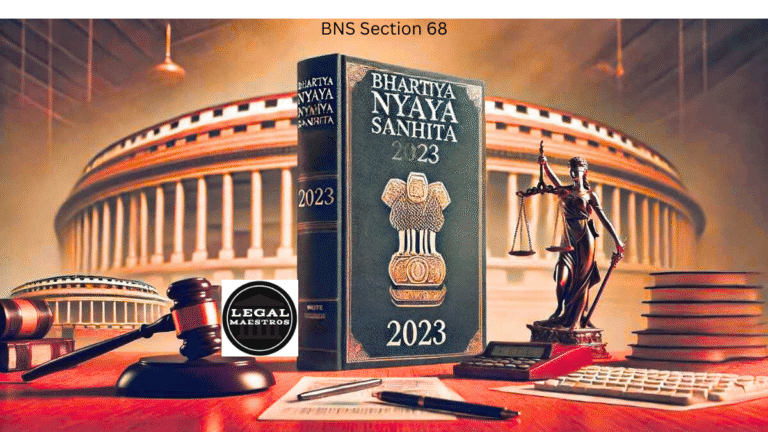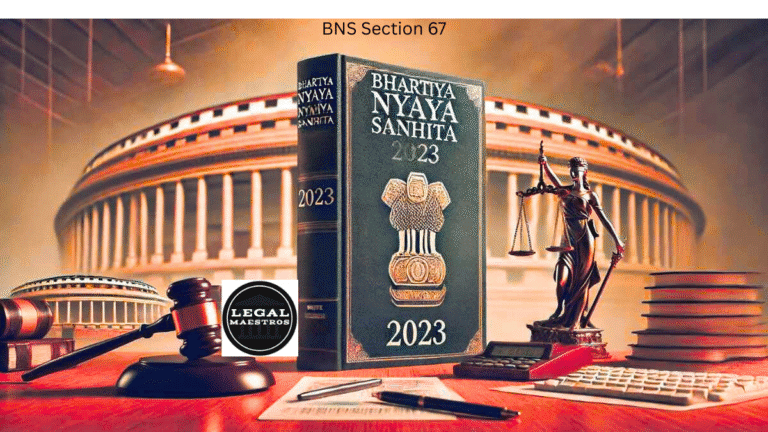
Criminal Conspiracy under Section 61 of the Bharatiya Nyaya Sanhita, 2023
Introduction
The Indian Penal Code (IPC) has been replaced by the Bharatiya Nyaya Sanhita (BNS), 2023, which has brought about considerable revisions in India’s criminal justice system. The criminal conspiracy offense is expressly addressed in Section 61 of the BNS, which expands upon the restrictions that were previously described in Sections 120A and 120B of the Indian Penal Code. The purpose of this part is to offer a thorough framework that can be utilized to effectively combat conspiratorial actions.
Explanation of the Concept of Criminal Conspiracy
A criminal conspiracy is defined as an agreement between two or more individuals with the common purpose of:According to Section 61(1) of the BNS.
Either commit an act that is illegal or commit an act that is not illegal but is committed using illicit means.
For any queries or to publish an article or post or advertisement on our platform, do call at +91 6377460764 or email us at contact@legalmaestros.com.
Specifically, the section makes it clear that such an agreement is considered to be a criminal conspiracy. On the other hand, it provides that no agreement, with the exception of one to commit an offense, shall constitute a criminal conspiracy until some act other than the agreement is done by one or more persons in furtherance of the agreement. For offenses, a simple agreement is sufficient, while for other acts, an overt act is required. This indicates that the former is adequate.
Punishment for Participating in a Criminal Conspiracy
If there is no express provision for the punishment of the conspirator, and the conspiracy is to commit an offense that is punishable with death, imprisonment for life, or rigorous imprisonment for a term of two years or more, then the conspirator will be punished in the same manner as if they had abetted such an offense.
It is possible that the punishment for conspiracies to conduct offenses that are not punishable as described above could include imprisonment of either description for a term that does not exceed six months, a fine, or both of these potential punishments.
An Example to Illustrate the Point
Take the following example into consideration:
The plan that Ravi and Suresh have is to rob a bank. They have reached an agreement to meet at a particular location in order to discuss the particulars and assign roles. It is expected that Ravi would disable the security system, and Suresh will be in charge of the monetary responsibilities. In preparation for the robbery, they buy various instruments and masks. In accordance with Section 61 of The Bharatiya Nyaya Sanhita 2023, their agreement and the activities they took in preparation for the robbery form a criminal conspiracy. This is the case even though they have not yet accomplished the crime. It is possible to punish them appropriately if they are caught.
Implications for the Law
The fact that the BNS recognizes criminal conspiracy as a separate offense demonstrates how seriously the legal system takes activities that involve multiple people working together to commit a crime. It is the intention of the legislation to discourage individuals from participating in such conspiracies by making it illegal to merely agree to commit an offense. This also makes it possible for law enforcement agencies to intervene at an earlier stage.
According to the Bharatiya Nyaya Sanhita, 2023, Section 61 is an extremely important component in the process of addressing and combating illegal actions that involve collaboration. The purpose of the legislation is to maintain public order and safety by discouraging individuals from entering into agreements to conduct illegal acts. This is accomplished by defining criminal conspiracy and penalizing those who engage in it.








